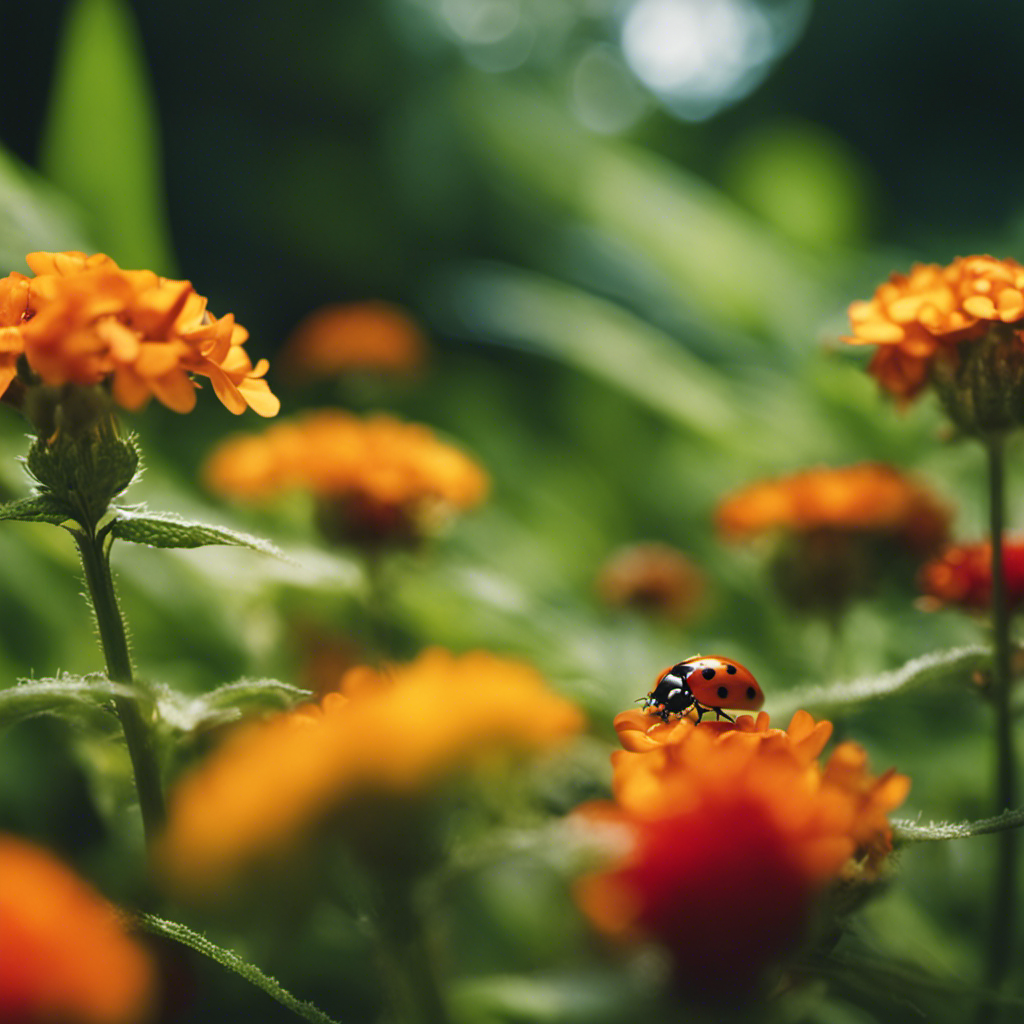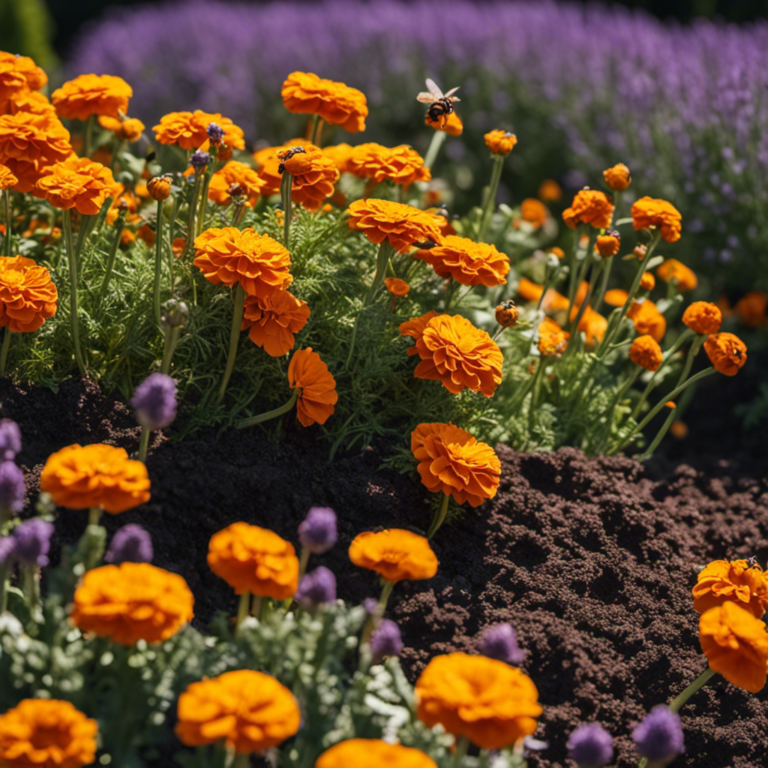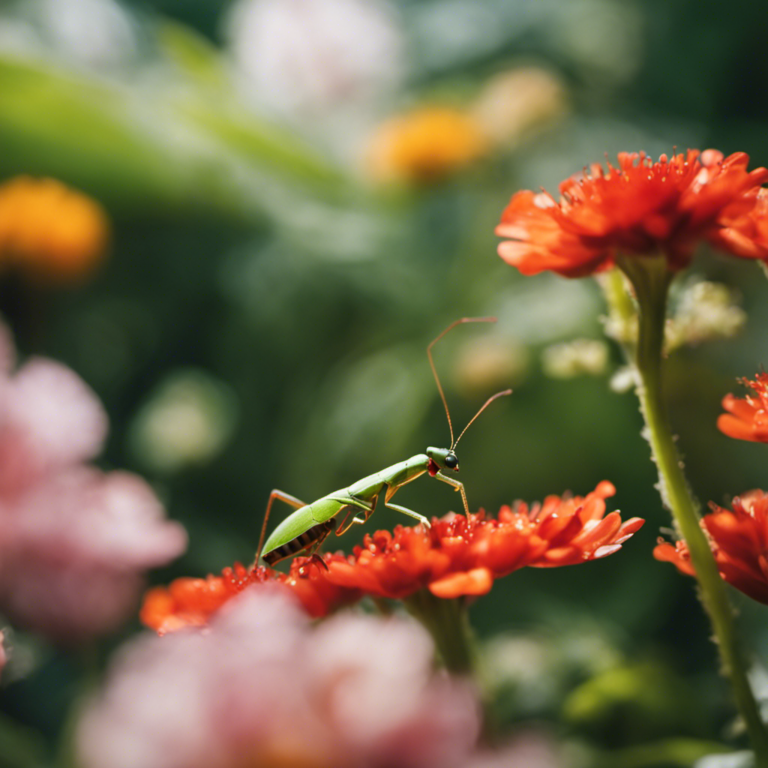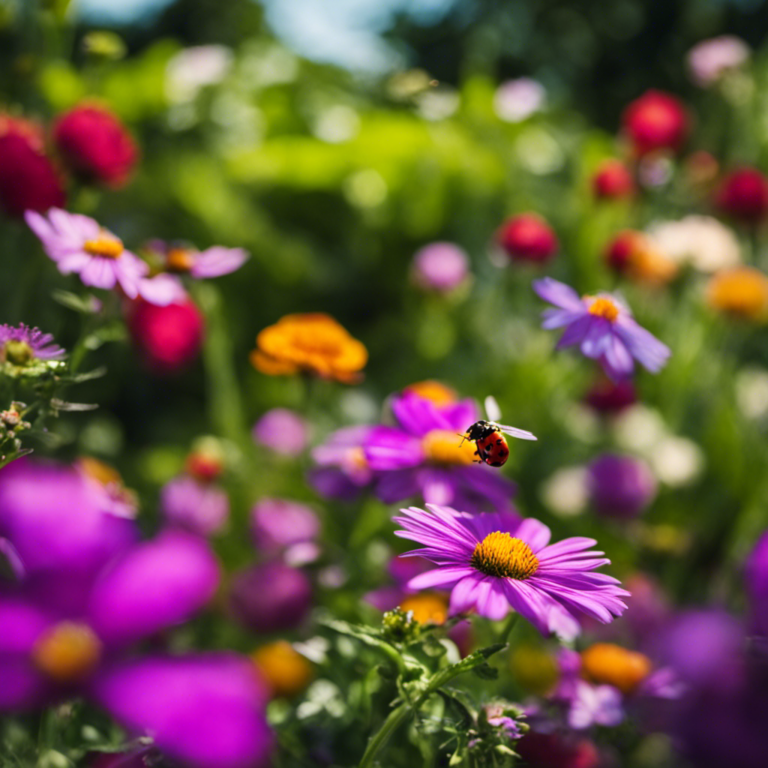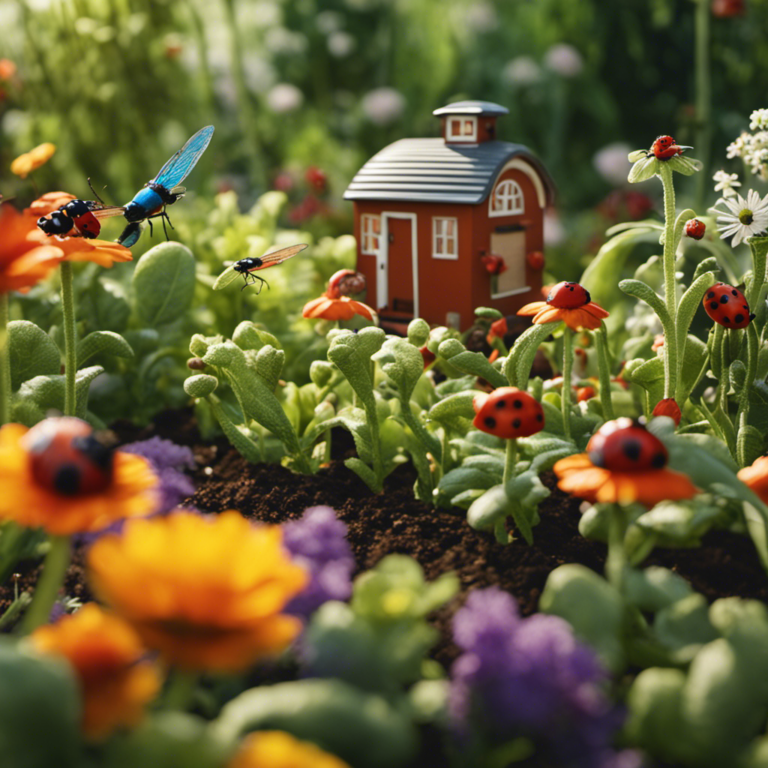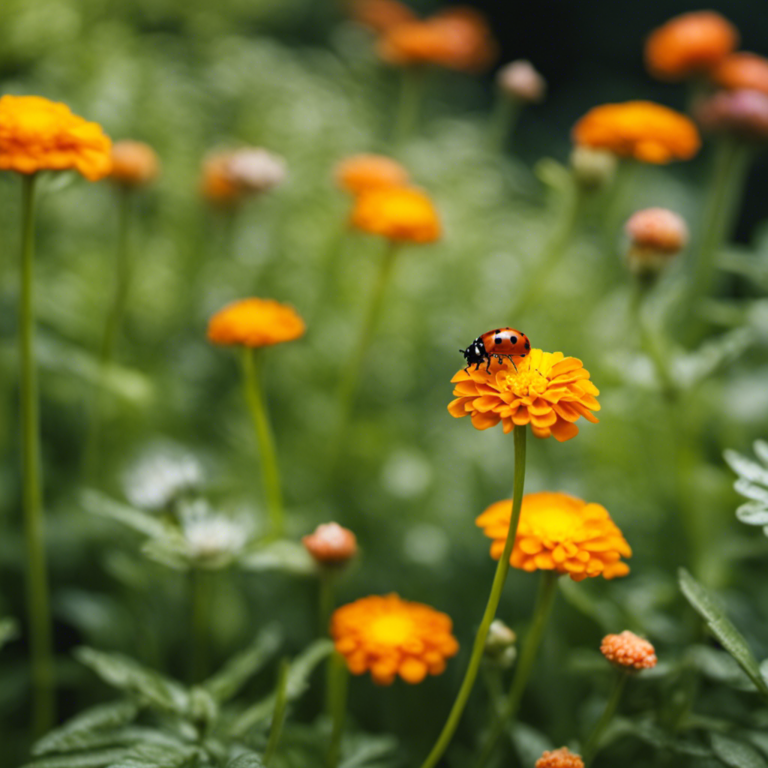Are you struggling with pesky garden pests? No worries! In this article, we’ll share effective methods for managing pests in your garden while being eco-friendly.
We’ll discuss techniques such as attracting natural predators and using companion planting. Additionally, we’ll explore homemade organic pest sprays and physical barriers to keep those critters away.
Discover the power of beneficial insects in maintaining a pest-free garden. With these methods, you can create a thriving and environmentally-friendly oasis in your garden.
Key Takeaways
Implementing eco-friendly methods for pest management in your garden can help create a balanced environment that supports beneficial insects and plants. By utilizing natural predators, companion planting, homemade sprays, and physical barriers, you can effectively keep pests away. These strategies not only safeguard your garden but also contribute to the sustainability and vitality of the ecosystem. So, instead of being bothered by pests, you can welcome a flourishing garden teeming with life!
Natural Predators for Garden Pests
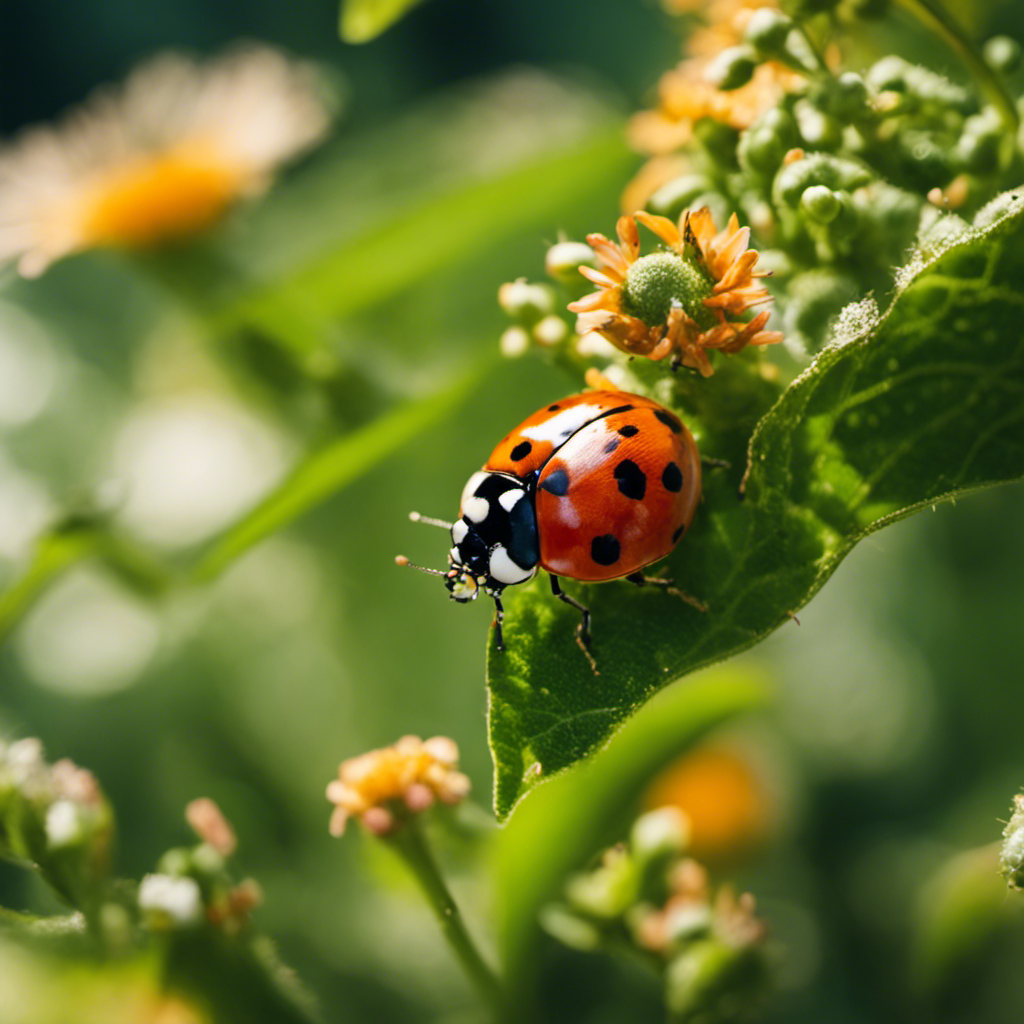
Invite natural predators into your garden to control pesky pests in an environmentally friendly and effective way. Creating a balanced ecosystem is key, and one strategy is to attract beneficial insects and animals that prey on garden pests.
Ladybugs, lacewings, and praying mantises are examples of insects that feed on aphids, mites, and other harmful insects. Birds like bluebirds and wrens can eat large numbers of caterpillars and beetles.
To attract these natural predators, provide shelter such as birdhouses and insect hotels, and plant pest-repelling plants like marigolds, lavender, and mint.
Companion Planting for Pest Control
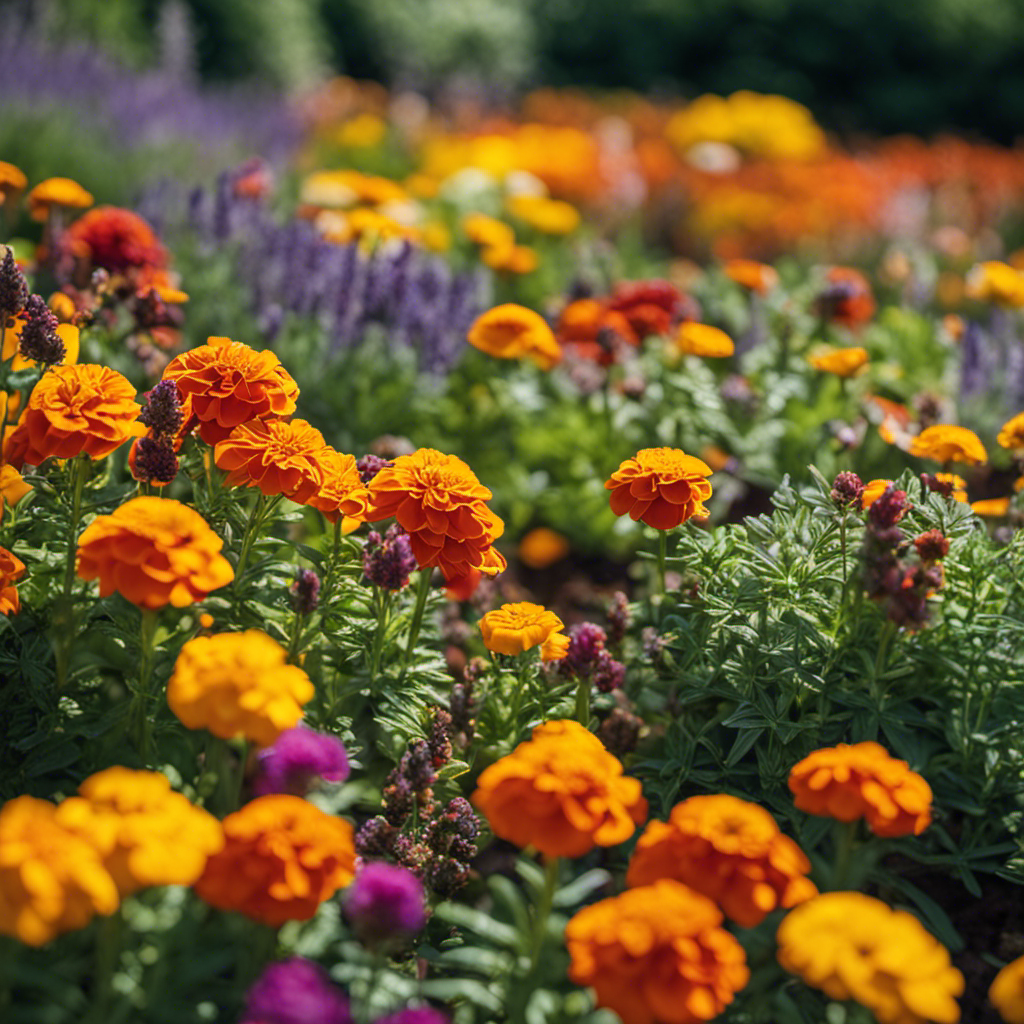
Companion Planting for Natural Pest Control
One effective and environmentally-friendly method for managing pests in gardens is through the practice of companion planting. Companion planting involves strategically planting certain crops together to deter pests and promote the overall health of the garden.
A key aspect of companion planting is crop rotation, which helps prevent pest infestations by disrupting their life cycles. By rotating crops each season, you can reduce the risk of pests taking hold in your garden.
Companion planting not only helps with pest prevention but also improves soil health and enhances pest resistance. Some plants, such as marigolds and garlic, naturally release compounds that repel pests. Others, like basil and dill, attract beneficial insects that feed on garden pests.
By incorporating companion planting into your garden, you can create a natural ecosystem that helps control pests and promotes a healthier and more sustainable garden.
Homemade Organic Pest Sprays

Making homemade organic pest sprays for your garden is a great way to manage pests in an eco-friendly manner. Not only are these methods safe for the environment, but they’re also effective in keeping pests away.
One popular ingredient for homemade pest sprays is essential oils. Peppermint, lavender, and neem oil are all natural repellents for a wide range of pests, including aphids, ants, and mosquitoes.
To create your own organic pest spray, simply mix a few drops of your chosen essential oil with water in a spray bottle. Give it a good shake and then spray it directly onto your plants, focusing on areas where pests are commonly found.
This natural pest control method isn’t only easy to make, but it’s also safe for both your plants and the environment. So why not give it a try and see the difference it can make in your garden?
Physical Barriers and Traps for Pests
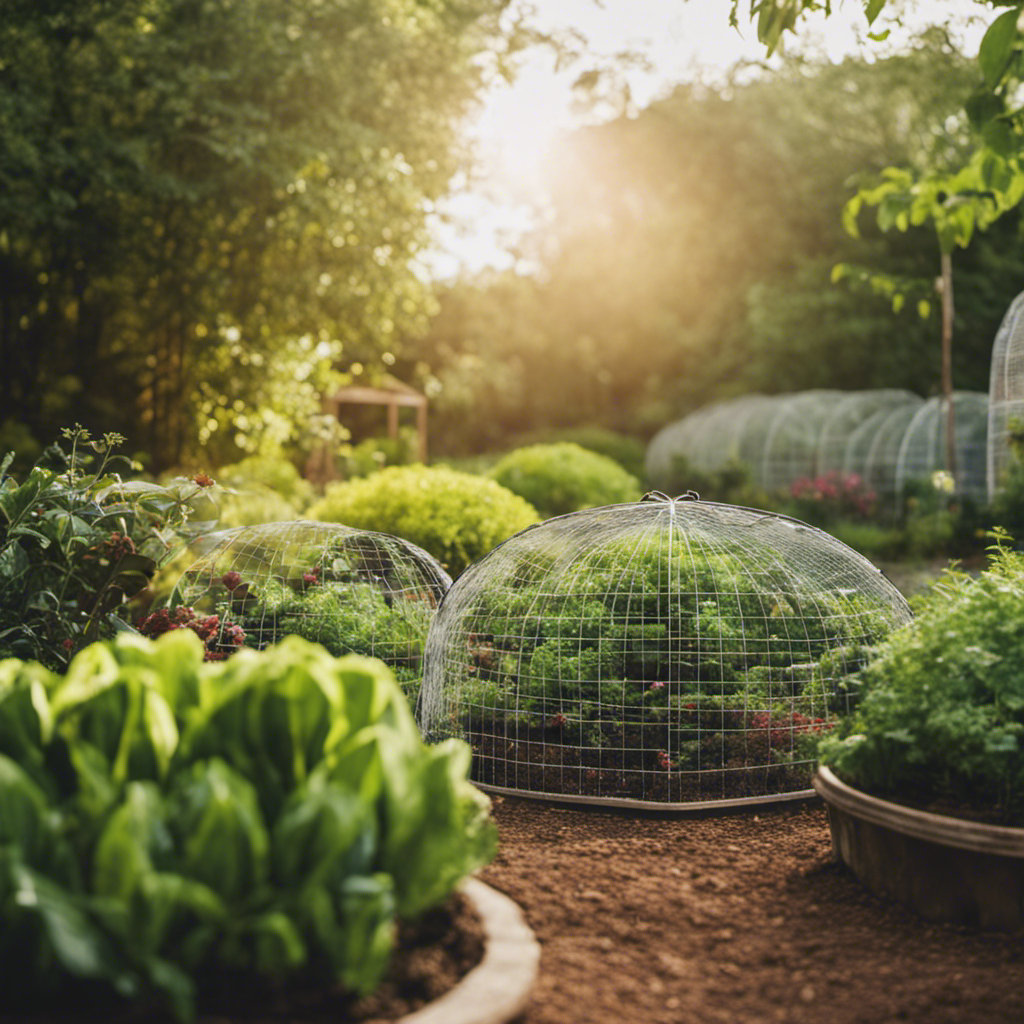
If you’re looking for effective and eco-friendly methods to manage pests in your garden, consider using physical barriers and traps. These techniques can help protect your plants without the need for harmful chemicals.
Physical barriers, like fences, netting, or floating row covers, create a barrier between pests and your plants, preventing them from reaching and damaging your crops.
Traps, on the other hand, can be used to attract and capture pests, reducing their population in your garden. There are different types of traps available, including sticky traps, pheromone traps, and light traps.
Additionally, incorporating biological controls and pest-resistant plants into your garden can further enhance your pest management efforts. Biological controls, such as ladybugs or nematodes, can naturally help control pests, while pest-resistant plants have built-in defenses to resist pest attacks.
Beneficial Insects for Pest Management
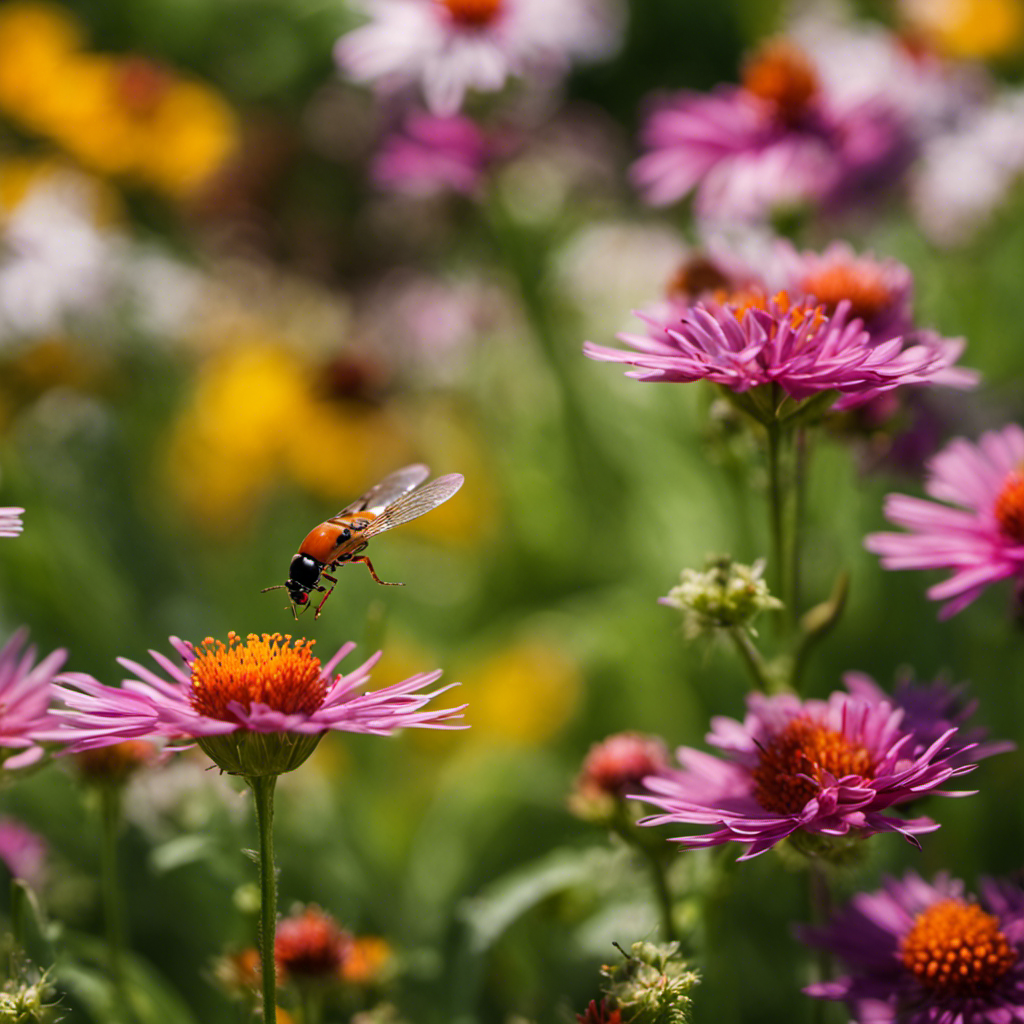
Consider introducing beneficial insects into your garden as a natural and effective way to manage pests. These helpful insects can assist in keeping your garden healthy and pest-free without the need for harmful pesticides. Here are three beneficial insects that can help control pests in your garden:
-
Ladybugs: These colorful beetles are voracious predators of aphids, mites, and other soft-bodied pests. Just a single ladybug can consume hundreds of aphids in a day, making them an excellent biological control method.
-
Lacewings: Lacewings are delicate insects that feed on aphids, mites, and other small insects. Their larvae, commonly known as aphid lions, are particularly effective in controlling aphid populations.
-
Hoverflies: Hoverflies resemble bees but don’t sting. Their larvae feed on aphids, thrips, and other small insects. Hoverflies aren’t only effective in pest control but also aid in pollinating flowers.
Conclusion
By implementing proven eco-friendly methods for pest management in your garden, you can create a balanced environment that supports beneficial insects and plants.
Utilizing natural predators, companion planting, homemade sprays, and physical barriers are effective strategies for keeping pests away.
These methods not only safeguard your garden but also contribute to the sustainability and vitality of the ecosystem.
So, say goodbye to those bothersome pests and welcome a flourishing garden teeming with life!
